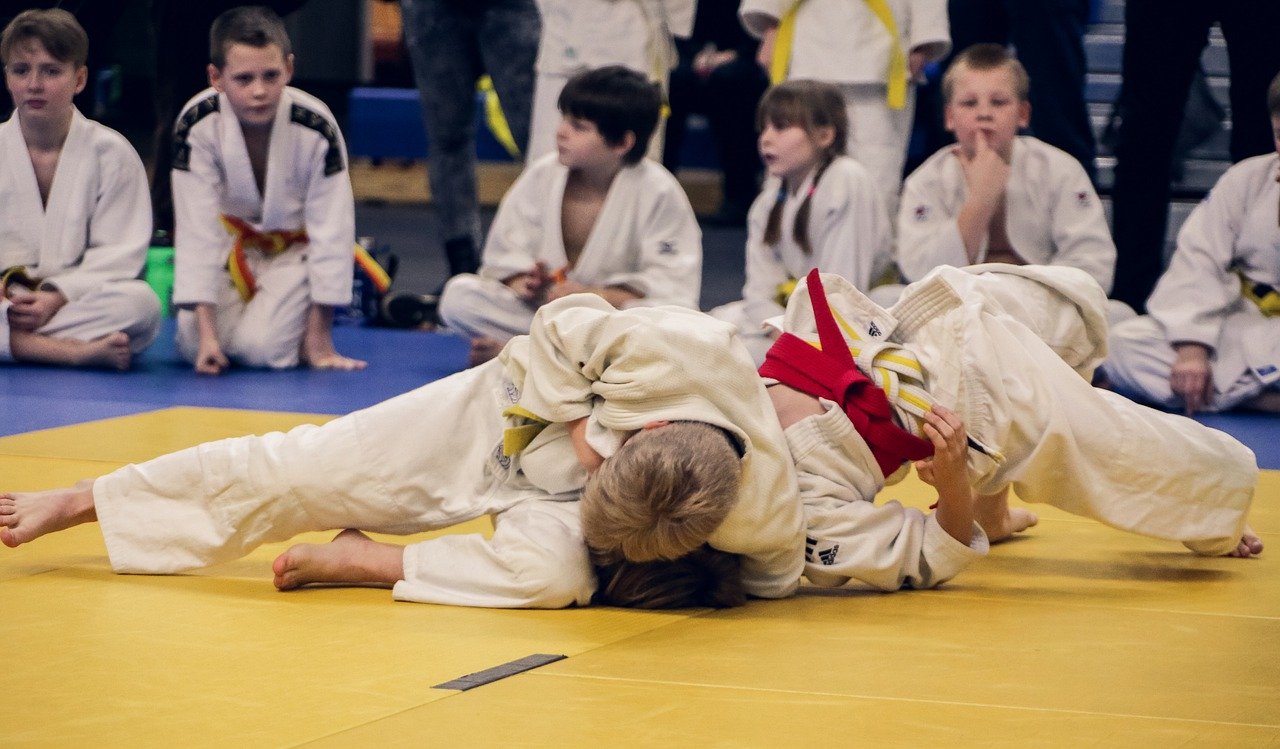In judo, the most vulnerable parts of the body to injury are the knees and shoulders. Do you know how injuries can happen and how to prevent them? Read on for a guide on practicing safe, injury-free judo.
The most common situation for injuries in judo is during standing throws. Elite judo players will get them the most often when they’re at intense camps for training or at the competition. In a match or training, there is a possibility of getting a concussion or serious head injury, and this risk is greater in beginners because they haven’t yet learned how to fall properly and changed their falling instincts. Head injuries are particularly worrisome because they can be missed or not immediately obvious, but they must be taken seriously.
If a player has received an injury, they are at a higher risk of getting injured again if they don’t step away from training and competition and give themselves sufficient time to recover or tone down the training while they heal. Furthermore, judo players could get judo ear, also known as cauliflower ear because of the constant blows to the ear and rubbing. The skin is right on top of the cartilage in the ear, and when there is bleeding between the cartilage and the skin it doesn’t get absorbed properly. In the case of cauliflower ear, evacuate the blood and put pressure on the area.
We’ve mentioned a few already, but the full list of common injuries is ACL, collateral ligament, and meniscus injuries in the knee, concussion, AC-joint injury, back or neck pain, rotator cuff injuries, dislocated elbows, humerus or forearm fractures, and ankle sprains. How can you prevent these injuries, especially when you’re starting out in the sport and you’re less familiar with protecting yourself?
The first step is to find a reputable coach by researching online and asking other people if you know any who practices judo. A good judo school should be clean, give you some good information when you visit it in person and have black belt instructors certified by the USJA, USJF, or USA Judo. As per Mark Rockland, a health writer at UK Writings and State Of Writing, “they should also be asking you to join one of these organizations when you join and give you insurance. Make sure the judo mats are clean and well-maintained. One key sign of poor judo is when a lot of children are extremely high ranked.”
One of the very first things you should learn is performing Ukemi (falls) the right way, and practice falling often with an instructor watching you and correcting your technique. You should not be thrown until you learn to fall on the mat without experiencing pain every time. Until you’re good at falling and you’ve learned some throws, you should be working only with the highest ranks (brown and black belts) because they know how to not hurt you due to their experience working with beginners.
When you move on to practicing different throws, take them slowly until you’re comfortable with the motion. This helps avoid injury. Another recommendation by Pauline Cranston, a sports blogger at Academized and AustralianHelp, is “don’t forget to stretch before and after each practice to minimize soreness and avoid pulling muscles. In addition to avoiding throws early on, you should avoid randori (sparring) until you’ve learned how to fall without injury or pain.”
This is against your instincts and very difficult, but you must relax when you’re being thrown. This is perhaps the most important step, because tensing up, especially in the first few months, can cause injury. If the person throwing you is experienced, which they should be, they will not throw you in a way that can cause injury, so by relaxing, you’re avoiding getting hurt. If you tense up you could even cause your partner to make a mistake and get injured.
Finally, if you feel pain, you need to stop. Don’t try to be tough and play through it because that can cause more serious, long-term injury. You should also not try to escape from a choke or armbar, although this shouldn’t happen in your first weeks in any case. By finding a good judo master and following these tips, you can avoid common judo injuries and become proficient in the sport.












